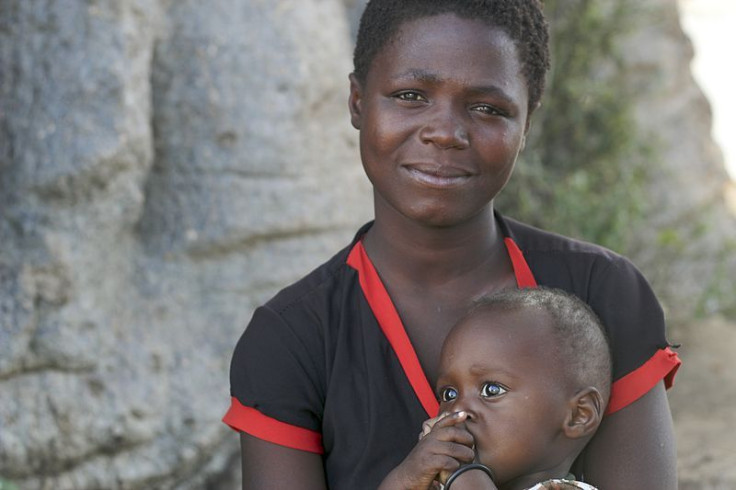Jade Beall’s 'A Beautiful Body' Book Project Celebrates Mothers' Bodies, Rejects Pressures For Mothers To ‘Bounce Back’ After Childbirth

It's perhaps no secret that large media corporations alter their photos to make models seem thinner, taller, or more beautiful. With the upcoming introduction of her book project, A Beautiful Body, however, photographer Jade Beall wants to change that mindset.
Beall's project focuses on mothers, and specifically, their bodies. The mother of a 16-month-old herself, Beall experienced firsthand the postpartum depression so many mothers slide into following an intimate, caring pregnancy. She felt un-beautiful, she says. She wanted to create an outlet for mothers who felt the same way.
Out of this desire came her book project, A Beautiful Body, which has already surpassed its kickstarter goal of $20,000. With four days remaining, contributors have already donated $46,883 — and the number is rising with each refresh of the page.
"We are facing an epidemic of women who feel unworthy of being called beautiful," Beall told the Huffington Post, describing a world in which "nearly all of us struggle to feel beautiful in our own skin."
Beall has photographed more than 50 moms so far — all black-and-white, semi-nude portraits of the women interacting with their children or accentuating the various blemishes they'd otherwise seek to conceal. Beall hopes to empower "her sisters," as she says, to encourage them to feel "authentically irreplaceable."
Beall admitted she faced feelings of self-loathing in the months following the delivery of her baby boy, Sequoia. She felt unattractive, yet she also recognized her feelings stemmed from a pressure in society to conform to traditional notions of beauty. Photoshopping, airbrushing, retouching — these were words Beall wanted to divorce from conceptions of real beauty.
Calling her photography "medicinal," she sees her project as a balm for those afflicted by the same pressure she felt.
"Shaming mothers for not 'bouncing back' after childbirth can cause feelings of failure when being a mother is challenging enough, and when a big number of us have already lived a life of feeling un-beautiful prior to giving birth," she said. "My dream is to be a part of a movement of being kind to ourselves and to others and witness a generation of young people that no longer waste years of precious life on self-loathing like I have because they think they are un-beautiful."
Some 15 percent of women suffer from postpartum depression, and it can arise for a variety of reasons — whether they be physical, emotional, or based simply on the mother's lifestyle changes.
Following the birth of a child, a mother's hormones level can drop substantially, and as estrogen and progesterone levels decrease, mood swings and feelings of fatigue can also set in. Couple these factors with the added hours spent awake and the unhappiness toward all of the body's physical changes, and the woman may soon begin feeling far less excited than she had during her pregnancy.
Experts advise the family members of a new mother to be sensitive to her issues and offer support when she needs it most, either in taking care of the baby or providing emotional stability. Antidepressants and counseling are also routes the mother can consider taking.
Beall's book project, which is entirely crowd-funded, is set to be released in January 2014.
"Some of us are left very different than when the whole thing started. I wanted to inspire others - to go put your bikini on, go to the pool," Beall urged. "You too are beautiful."
Published by Medicaldaily.com



























